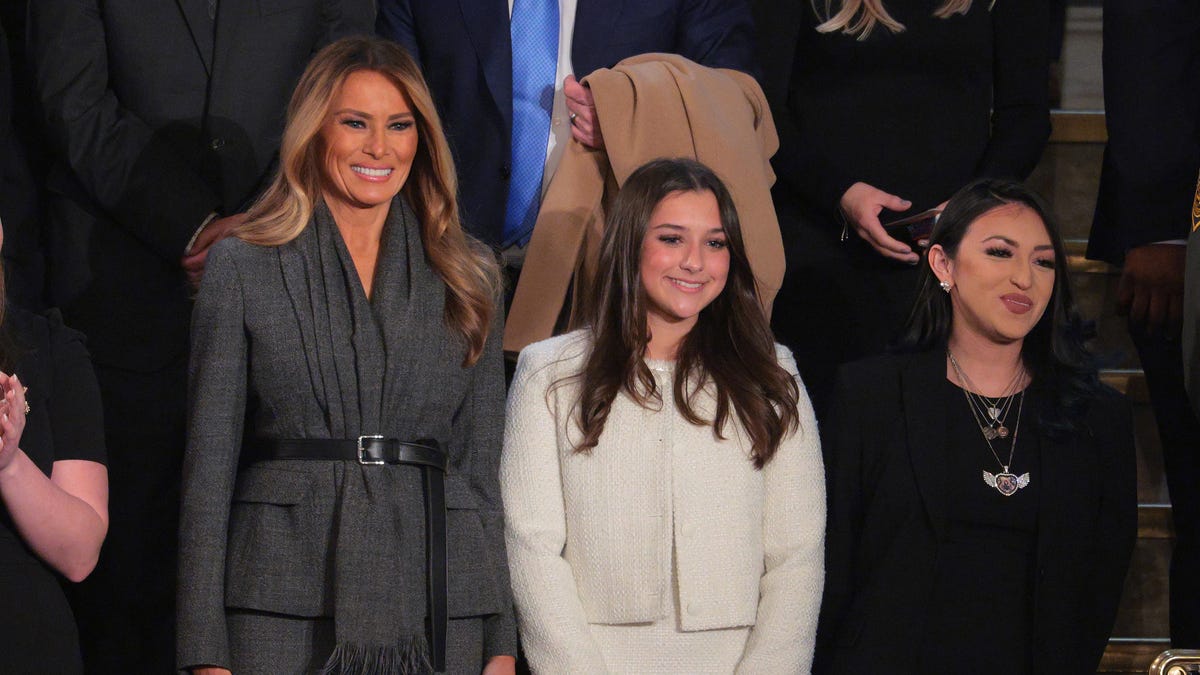The Take It Down Act has been a top priority for First Lady Melania Trump. President Trump is expected to sign the bill into law.
Melania Trump pushes for ‘Take It Down Act’
Melania Trump spoke out in favor of legislation that would criminalize the publication of non-consensual deepfake sexual images.
A bill to criminalize AI-generated explicit images, or “deepfakes,” is headed to President Donald Trump’s desk after sailing through both chambers of Congress with near-unanimous approval.
The Take It Down Act has enjoyed uncommon bipartisan support, along with a key endorsement from the first lady.
“It’s heartbreaking to witness young teens, especially girls, grappling with the overwhelming challenges posed by malicious online content, like deepfakes,” Melania Trump said during a rare public appearance on Capitol Hill March 3 to lobby for the legislation.
Deepfakes are photos, videos or audio altered or created by artificial intelligence to appear real, often without the subject of the media’s consent. Many of the images are manipulated to put people into compromising situations, showing them appearing inappropriately or putting them in places that could spark controversy or embarrassment. The images have become a major cause for concern with the explosion of AI technology.
The newly-passed bill will require technology platforms to remove reported “non-consensual, sexually exploitative images” within 48 hours of receiving a valid request. Sens. Ted Cruz, R-Texas, and Amy Klobuchar, D-Minnesota, introduced the legislation in August.
Faked explicit images of pop star Taylor Swift circulated on social media last January, prompting backlash from fans and widespread calls for increased regulation.
At the time, USA TODAY was able to identify 10 states outlawing deepfake pornography, like the depictions of Swift. There was then no federal equivalent, such as the Take It Down Act.
Global celebrities are not the only targets of AI-generated attacks: One in eight teens say they personally know someone victimized by explicit deepfakes, according to a report in March by Thorn, a nonprofit advocating for online child safety.
One of the victims, high schooler Elliston Berry, has been a vocal advocate of the Take It Down Act alongside the first lady.
Berry was 14 when a classmate used AI to photoshop her face onto a naked body and shared the false digital images on social media. The Aledo, Texas teenager joined Melania Trump as a special White House guest for the president’s annual joint address to Congress March 3, as well as the day before for the first lady’s Capitol Hill remarks.
“Fear, shock and disgust were just some of the many emotions I felt,” Berry, then 15, said at the March 3 event. “I felt responsible and began to blame myself and was ashamed to tell my parents, despite doing nothing wrong.”
The Senate passed the Take It Down Act in February with unanimous consent. The House followed suit on April 28, approving it 409-2.
President Trump is expected to sign the bill into law.
“Today’s bipartisan passage of the Take It Down Act is a powerful statement that we stand united in protecting the dignity, privacy, and safety of our children,” Melania Trump said in a statement. “I am thankful to the Members of Congress—both in the House and Senate—who voted to protect the well-being of our youth.”
Contributing: Swapna Venugopal Ramaswamy, Kayla Jimenez, Elizabeth Weise and Jeanine Santucci
